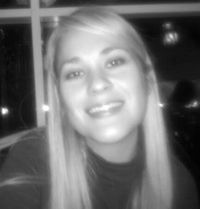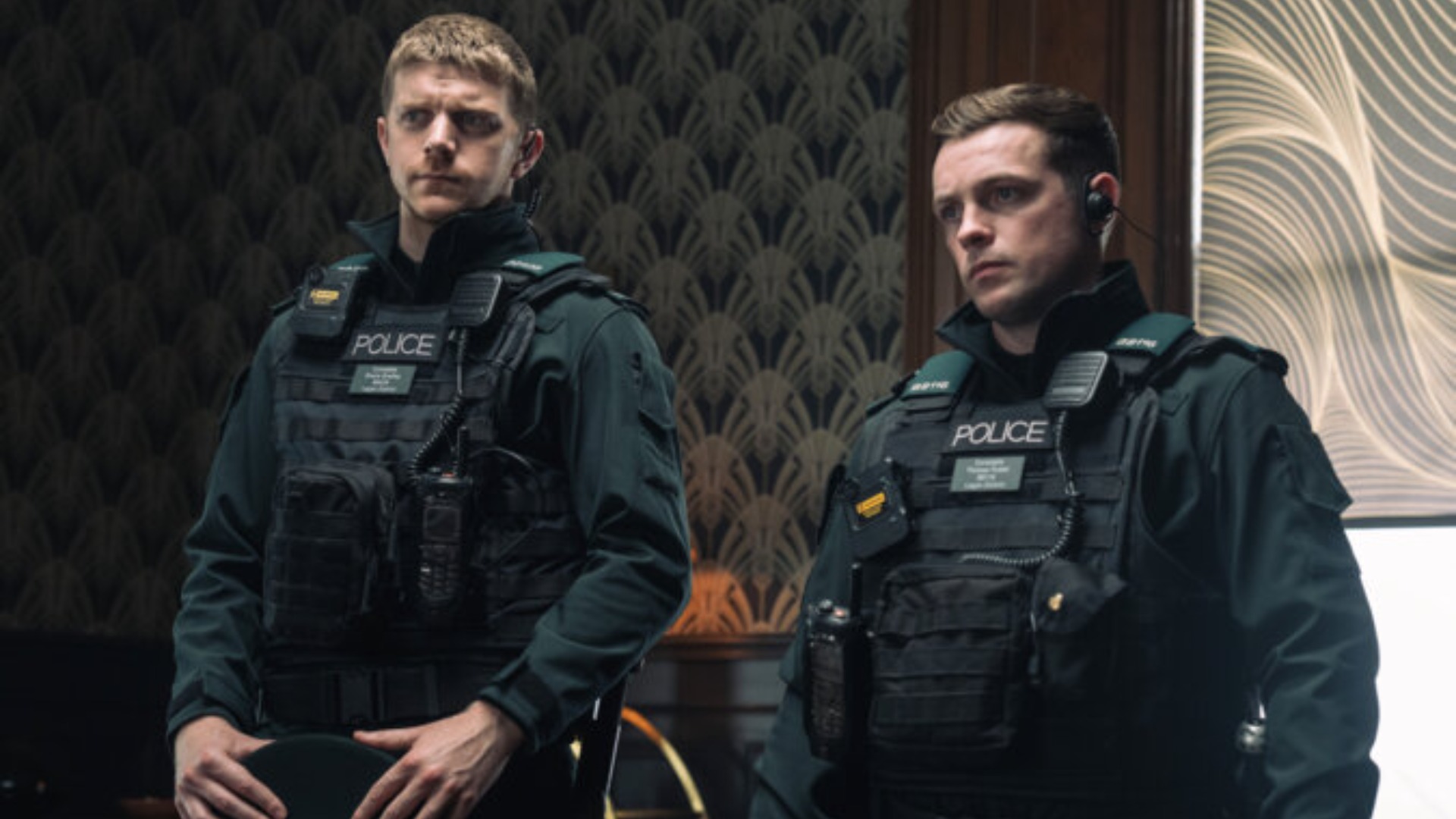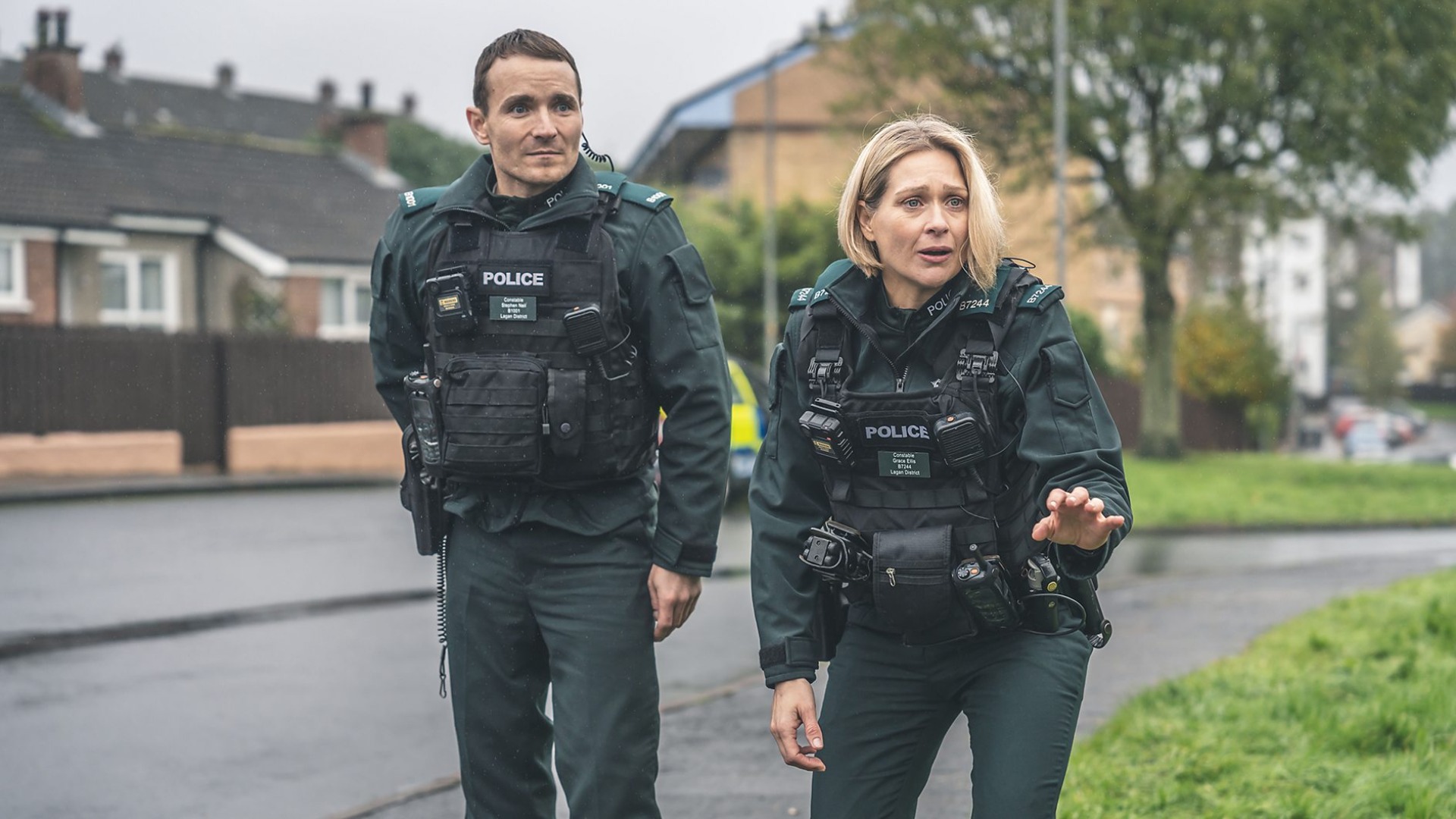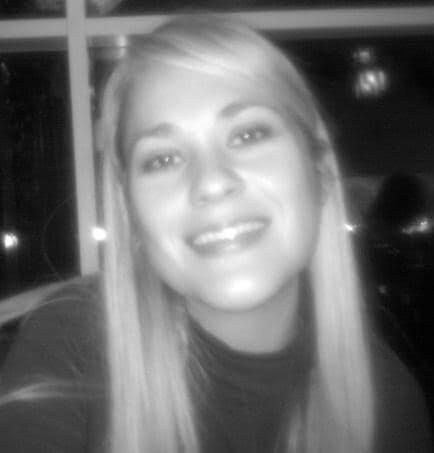Why are police called peelers? Decoding the Blue Lights lingo confusing you
If you've been tuning in to Blue Lights and some of the language is lost on you, don't worry - we break down the terms used in the series


Sign up to our free daily email for the latest royal and entertainment news, interesting opinion, expert advice on styling and beauty trends, and no-nonsense guides to the health and wellness questions you want answered.
You are now subscribed
Your newsletter sign-up was successful
Want to add more newsletters?

Daily (Mon-Sun)
woman&home Daily
Get all the latest beauty, fashion, home, health and wellbeing advice and trends, plus all the latest celebrity news and more.

Monthly
woman&home Royal Report
Get all the latest news from the Palace, including in-depth analysis, the best in royal fashion, and upcoming events from our royal experts.

Monthly
woman&home Book Club
Foster your love of reading with our all-new online book club, filled with editor picks, author insights and much more.

Monthly
woman&home Cosmic Report
Astrologer Kirsty Gallagher explores key astrological transits and themes, meditations, practices and crystals to help navigate the weeks ahead.
The countdown is over, and the long-awaited third season of Blue Lights is finally airing. The BAFTA-winning, gritty, engrossing, and all-around edge-of-your-seat series was definitely worth the wait, getting off to a strong start for season 3.
Like us, you might've needed a season 2 recap before settling down for the new episodes - who can remember back that far? Also, like us, you might be wondering what some of the terms used in the show actually mean.
To save you pausing and Googling, we've put together a guide to the lingo you might find in Blue Lights, especially one of the most popular ones - the meaning behind the term 'peeler' when referring to a police officer.
Why are police called peelers in Blue Lights?
The answer is an interesting one. The name dates all the way back to 1822, deriving from Sir Robert Peel. When Peel was appointed Home Secretary, he overhauled penal reform and founded the Metropolitan Police Force in 1829.
This is how police constables came to be known as "bobbies" as well as "peelers" - Bobby is a shortened version of Robert, and Peeler a derivative of Peel - the terms stemmed from this early police reformer.
Peel's model of policing became popular and quickly spread across the country. As other counties adopted his crime-fighting methods, the names "bobby" and "peeler" spread with it, although ultimately, "bobby" became more well known in England.

Soon afterwards, Peel's policing model was implemented in Ireland, with the police nicknames also making their way there. However, while "bobby" has usually been an affectionate name used for members of the police, "peeler" really stuck in Ireland and developed negative connotations.
Sign up to our free daily email for the latest royal and entertainment news, interesting opinion, expert advice on styling and beauty trends, and no-nonsense guides to the health and wellness questions you want answered.
The Peeler and the Goat is an old Irish ballad poking fun at early Royal Irish Constabulary members who it was felt abused their power and were corrupt in nature.
This is why shouts of "peelers!" in Blue Lights and statements of "oh, you're a peeler now?" aren't said with any affection in the show.
More Blue Lights lingo
- PAPA Check: An ID check under the Police Affairs & Powers Act to check or confirm someone's identity.
- Frequent flyer: Somebody well known to the police, whom they get used to seeing on a regular basis.
- Flackers: These refer to flak jackets, otherwise known as a protective vest or body armour.
- Cleanskin: An undercover agent who is totally unknown to their targets. They're usually "clean" of any previous undercover activity, allowing them to gather information without compromising their identity.
- Touts: Informants, or others passing information to the police.
- Gulliver nominal: Someone with connections to paramilitary, terrorist, or criminal activity.
- FMO: Quite simple - the forensic medical officer.
- TSGs: Another straightforward one - tactical support groups.
- MIT: Major investigation team.
- ARVs: Armed response vehicles.
- SIO: Senior investigating officer.
- VCPs: Vehicle checkpoints.
- PNC: Police National Computer.
- PSD: Professional standards department.
- PPS: Police prosecution service.
- OOB: Out of bounds.
Other terms you might hear in the series, not related to policing, include:
- Geg: Someone who is fun or amusing, or is generally deemed lively and entertaining.
- Scundered: Another word for being embarrassed or ashamed.
- Craic: One of the more well-known terms, it refers to anything that is fun and exciting, or somewhere with a good atmosphere.
- Ride: Either a person who is attractive, or to actually have sex with someone.

Lucy is a multi-award nominated writer and blogger with seven years’ experience writing about entertainment, parenting and family life. Lucy worked as a freelance writer and journalist at the likes of PS and moms.com, before joining GoodtoKnow as an entertainment writer, and then as news editor. The pull to return to the world of television was strong, and she was delighted to take a position at woman&home to once again watch the best shows out there, and tell you why you should watch them too.
You must confirm your public display name before commenting
Please logout and then login again, you will then be prompted to enter your display name.